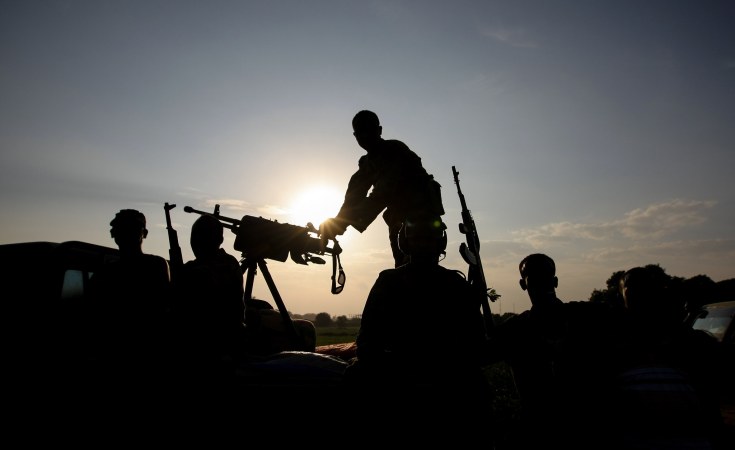Washington — In his first stop on a two-country visit to Africa, U.S. Secretary of State Antony Blinken is in Ethiopia's capital, Addis Ababa.
The trip is part of an effort to deepen U.S. engagement with the continent. U.S.-Ethiopia relations have been strained in the past two years due to a brutal civil war that left an estimated 500,000 civilians dead due to violence, starvation and lack of medical attention. Thousands more were displaced.
Blinken is scheduled to meet with Ethiopian Prime Minister Abiy Ahmed on Wednesday. He is also expected to meet with Tigrayan officials.
His trip will focus on the implementation of a peace deal brokered last November that ended hostilities in the country's northern Tigray region.
Sarah Yager, Washington director at Human Rights Watch, said that Abiy is hoping to secure economic aid and a pledge of "normalized relations" from Blinken, although the country is still not at peace.
"There is a cessation of hostilities agreement, which has, in fact, brought some relief to the suffering of the people of Ethiopia. Particularly in the north, in the Tigray region," Yager told VOA. "Some aid can get through, communications are flowing, fuel prices are down, food prices are down, all of this is very positive."
In January, Tigrayan forces said they began handing over tanks and heavy weapons as part of the peace deal.
But despite gains made since the peace deal, human rights advocates say there's more work ahead.
"It is not all sunshine and roses," Yager added. "There are still abuses happening throughout, not just the Tigray region, but in other parts of the country."
Kate Hixon, Africa advocacy director at Amnesty International USA, argued that Blinken should center all his engagements with the government of Ethiopia around human rights.
"There still needs to be improved access throughout the country for humanitarian actors and human rights monitors," Hixon said. "We also still need to see more commitment on justice and accountability and would really like for Secretary Blinken to push that."
Earlier this year, France and Germany's foreign ministers visited Ethiopia, touring a warehouse stocked with humanitarian aid and holding talks with leaders. They called for establishing a transitional justice mechanism to punish human rights abuses committed during the conflict, saying there can be no reconciliation without accountability.
"Ethiopia has been backsliding on democracy and freedoms across the country, and abuses are still continuing in some of those same places where the worst suffering has happened. So, we are seeing detentions, killings, sexual violence," Yager said. "These things are still ongoing and so that's why we want to see Secretary Blinken deliver some tough messages about accountability when he is there."
In February, the government of Ethiopia announced that there is a resolution to terminate the mandate of an International Commission of Human Rights Experts on Ethiopia, a body tasked to investigate crimes committed during the war.
Although the government of Ethiopia has made efforts domestically to investigate human rights abuses, Hixon said the government should also allow international efforts.
"All parties to the war have committed unspeakable abuses including mass extrajudicial killings, sexual violence against women and girls," she told VOA. "There has been an accountability deficit that has really permeated the conflict. And the commission is one way to make sure that there is documentation of some of these abuses and potential for accountability down the road."
The U.S., Hixon added, should support independent civil society efforts to document atrocities.
"We are asking that Blinken make clear that they have support or that the commission has the U.S. support and that they expect the government of Ethiopia to continue to engage with this commission and give unfettered access in the country," she told VOA.
Blinken will head to Niger on March 16 and become the first U.S. Secretary of State to visit the country. He plans to meet with President Mohamed Bazoum and Foreign Minister Hassoumi Massaoudou in Niamey and focus on counterterrorism efforts in the region.


